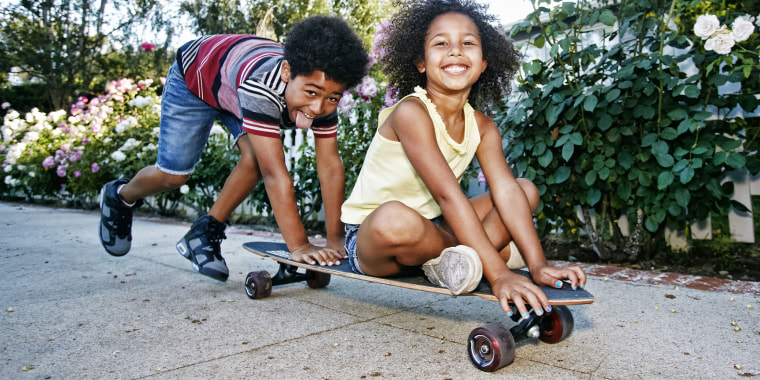Kindness is at the root of every healthy relationship, and you play a critical role in your child’s ability to treat others with compassion and respect. Your child’s ability to be kind begins at home, and when you show empathy, respect differences and behave compassionately, you are promoting caring behavior.
Gratitude and positive thinking are related to kindness and respect. You can begin to cultivate your child’s attitude of gratitude by keeping a journal about what you are grateful for and using it as a bridge to ask your child to keep a journal that details what he’s grateful for and how he displays kindness. You can even ask him to include ways that people were kind to him. During dinner time, ask your child to talk about what he is grateful for that day, and have everyone in the family go around and do the same thing. Focusing on what went well for everyone that day can be a useful tool for adults and children who can get stressed and sometimes focus too much on the negative. Getting into this habit of tracking and discussing acts of kindness given and received can make your child, and your entire family, more mindful of the positive aspects of their day, and can help to build empathy, kindness, and compassion.
Director of the Rutgers Social and Emotional Laboratory Maurice Elias suggests that you not shy away from conversations about when your child is treated unkindly. This will happen as he gets out into the world. Being treated unkindly, especially when one has made a personal commitment to being kind to others, can be a shock. Don’t normalize unkindness by saying comments like, “Yes, well, everybody is like that.” As a parent, you want your child to see the glass as half-full, but you can’t pretend that there is no unkindness in the world. When something horrible happens, and you see and hear about it on the news, don’t hesitate to say to your child when he asks, “I don’t know why they did that, or how they could treat others so unkindly.”
Talk to your child about bullying and his relationships with his peers. During the late elementary years, your child is on the verge of adolescence, and the emotions, peer pressure, and group mentality brought on by this phase can affect the way he approaches relationships. A survey conducted by "Highlights" magazine found that 61 percent of those polled said they had experienced bullying and 14 percent admitted to bullying others. The digital age brings more opportunities for bullying (and the chance to do it anonymously), and raising your child’s awareness of this complex issue can help him deal with these types of situations. A good way to do this is to provide him with language that can he can use to stand up for himself and others. For example, you could ask him, “What would you do if your friend started calling a classmate hurtful names?” and follow that with, “You can say something like, ‘Our classmate was hurt by what you said. How would you feel if he did that to you? Maybe you should say that you’re sorry.’” Explain to your child that bullying occurs when people don’t respect another person’s emotions. By talking to him about these situations, you are helping to prepare him to identify bullying and fight against it in the future.
Parent Toolkit resources were developed by NBC News Learn with the help of subject-matter experts, including Maurice Elias, Director, Rutgers Social-Emotional and Character Development Lab; Jennifer Miller, Author, Confident Parents, Confident Kids; and Michele Borba, Author, and Educational Psychologist.
